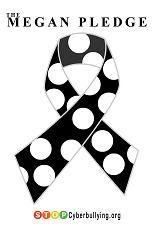One thing I keep noticing is the use of the terms "verbal" and "non-verbal" when referring to children with a variety of communication disorders, including autism. We just had a SPED meeting, so the use of it bouncing around the bar (we all go out and debrief afterwards- usually over beer. This time we had lots of non-drinkers, so hot chocolate) brought it to mind again.
Depending on how you use the term, Joey is verbal. Or Joey is non-verbal.
Joey is on the brink of language. He has lots of words to use now, and is stating to use it pragmatically and conversationally. He reads, he talks, he answers some questions. For a lot of folks, this is "verbal."
However, his pragmatic and conversational language is limited. Most of his speech is nonsense, echoed, scripted, or perseveration. He runs out of words and has to turn to other forms of communication. He prefers visual communication to oral communication. We began our adventure with a child who had zero words. For a lot of folks, this counts as "non-verbal."
What it brings to the fore is the inexact use of language when trying to discuss disabilities and abilities.
I often have heated discussions of the word "myth." In common use, this term implies falsehood, even deception. Stories taken as true which are really not true. Stories that refer to explanations of things we don't understand. However, in many academic fields, including mine, "myth" is not about falsehood. Myths are narratives that refer to deeper truths using mundane language. Myths are intended to be read "on the slant"- they hint and provide glimpses of Truth in terms humans can use; using inexact human language, these stories point to the workings of the cosmos and our role within that larger Being.
Having a conversation with another person about myth can get interesting, especially if we are using these two related, but significantly different, meanings for the term. We start gibbering in nonsense, like a passage from Alice in Wonderland.
For me, Joey being verbal or non-verbal is a matter of getting him speech service. To me, he is verbal. This qualifies him for speech services in this city. Thats what labels are for- guiding us in what services he might need. The whole autistic, verbal, ritualistic, disabled thing is not about Joey; but they are labels and myths that guide and point us to think deeper about who Joey is, how he is experiencing the world, and how we can support him.
For the difference, between "help" and "support", I refer you back to my good friend Snail. Snail wants to be supported, not helped all the time.
Subscribe to:
Post Comments (Atom)




















5 comments:
I think Joey is very verbal. It just requires some detective work to figure out what he's being verbal about. It's an inefficient way to be verbal sometimes, especially when conversing with a stranger. Here's hoping your little guy gets the help and/or support that he needs!
Excellent.
Best wishes
I know what you mean about myths.
My son is non verbal but certainly makes up for it in volume of his sqeeks!
Yeah, verbal vs. non-verbal is dumb. I think it was originally used for classifying adults and, while it is useless enough there (how do you classify adults who use communication devices?) it is particularly pointless when applied to children. Most kids on the spectrum acquire language in their own, unique way, with lots of unusual changes and progress. When you want to say something about an autistics kids language skills, trying to fit it into either the "verbal" or "non verbal" box, is like wanting to say something about the reproductive state of marsupials and trying to fit it into the "pregnant" or "not pregnant" box. There's a little more to it than that.
The only thing worse than verbal:non-verbal is high functioning:low functioning.
Our kids are much richer than the false dichotomies presented.
Joe
Post a Comment